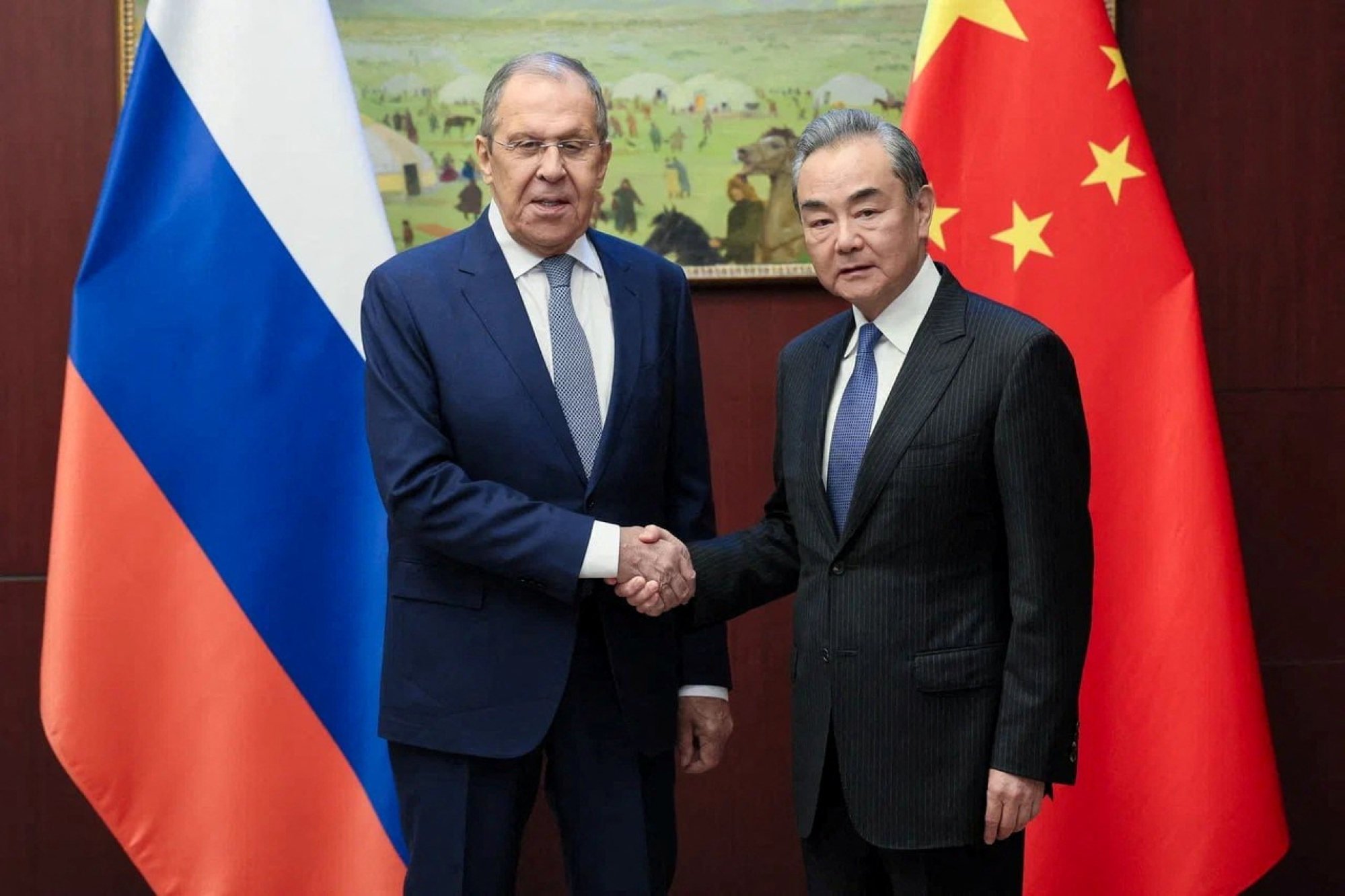
Chinese President Xi Jinping is expected to meet his Russian counterpart Vladimir Putin in Kazakhstan in July, Russia’s top diplomat said during a meeting with China’s foreign minister on Monday.
It will be the second meeting between the top leaders of China and Russia in about two months, after Xi hosted Putin in a state visit in China, both vowing to expand political, diplomatic, economic and military ties amid increasing pressure from the West.
“Our schedule of contacts is very, very intensive. We look forward to welcoming you, Mr Minister, dear friend, at a session of the Brics foreign ministers in Nizhny Novgorod [in Russia] in less than a month. Our leaders will meet during an SCO summit here in Astana in July,” Sergey Lavrov said in a meeting with Chinese Foreign Minister Wang Yi, according to the Russian Interfax news agency.
China and Russia are founding members of the Shanghai Cooperation Organisation, a regional political, economic and security grouping set up in 2001 by China, Russia and four former Soviet Central Asian states. In 2017, India and Pakistan became state members and last year Iran gained full membership.
Speaking on the sidelines of the SCO foreign ministers’ meeting on Monday, Wang told Lavrov that China and Russia should ramp up support for each other and increase joint efforts to ensure stability in their shared region.
“The two sides should prepare for bilateral engagement in the course of the year, continue to increase mutual support, stabilise the fundamentals of cooperation and maintain security and stability in the common Chinese-Russian neighbourhood,” Wang said, according to China’s foreign ministry.
Wang said a close-knit SCO “meets not only in the common interests of its member states but also goes along with the trend of multi-polarisation in the world”.
“China is willing to work closely with Russia and other member states to keep the SCO on a steady course, jointly safeguard the overall situation of regional security, stability and development, and promote the development of global governance in a more just and reasonable direction.”
According to the Russian foreign ministry, the two diplomats also exchanged views on “various pressing issues, including the Middle East peace process, developments in the Red Sea region and the situation on the Korean peninsula”.
They also emphasised the need to build “a new security framework for Eurasia, particularly given the stagnation of [the] Euro-Atlantic mechanism”.

Among its efforts to counter perceived US-led containment in the Indo-Pacific region, China has increasingly turned to boost ties with Central Asia, a vast and resource-rich region seen by China as crucial for trade expansion and energy security, as well as for maintaining stability in its western Xinjiang region.
Last year, Xi hosted the leaders of five former Soviet states – Kazakhstan, Kyrgyzstan, Tajikistan, Turkmenistan and Uzbekistan – in the ancient western Chinese city of Xian where he pledged to offer economic, infrastructure and security support to the region.
On Monday, during a meeting with Kazakh Foreign Minister Murat Nurtleu, Wang hailed the trust between the two countries.
“China and Kazakhstan have deepened mutual political trust, support each other on issues of mutual core interests and help each other when one of them encounters difficulties, and China and Kazakhstan have long been a de facto community of destiny.”
According to the Chinese foreign ministry, China agreed to expand energy cooperation with Kazakhstan and import more of its agricultural products.
Meanwhile, they agreed to “actively consult on the construction of a third cross-border railway”.
Beijing and Astana pledged to further upgrade cross-border transport services and policies to “create more favourable conditions to further strengthen cooperation” on the China-Europe Railway Express that links more than 100 Chinese cities with more than 200 cities in Europe, mostly through Kazakhstan.
SCMP

